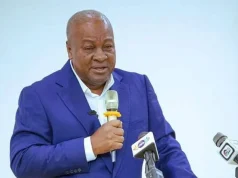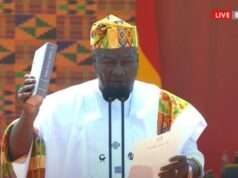Government has pledged to expand the Livelihood Empowerment against Poverty (LEAP) programme to all 2.5 million extremely poor individuals by 2024.
Minister for Finance Mr. Ken Ofori-Atta who announced this said the move was in line with government’s tradition of compassion and care for the underprivileged.
“We expect to strengthen social protection through increases in social spending to protect the most vulnerable and the poor from the impact of adjustments under the programme”, Mr. Ofori-Atta indicated.
In the 2023 Budget, the government made specific provisions for doubling the LEAP payment per beneficiary household from GH¢45 per month to GH¢90 with progressive increase in the number of beneficiary households from the current 344,185 households.
Mr. Ofori-Atta also announced that government will be increasing the budgetary allocation for the School Feeding Programme to compensate for higher cost of meals and also to ensure a more efficient management of the programme.
Again, it will increase the Capitation Grant over time as part of measures to improve foundational learning.
About LEAP
The Livelihood Empowerment Against Poverty (LEAP) is a cash transfer programme introduced by the Government of Ghana (GOG) under President John Agyekum Kufuor in 2008, for extremely poor and vulnerable households which have the following three categories of eligible members:
Orphaned and vulnerable children (OVC) or,
Persons with severe disability without any productive capacity and Elderly persons who are 65 years and above
The main objective of the LEAP Programme is to reduce poverty by increasing and smoothening consumption and promoting access to services and opportunities among the extremely poor and vulnerable.
The Specific Objectives are:
-To improve basic household consumption and nutrition among children below 2 years of age, the aged (65 years and above without productive capacity) and people with severe disability;
-To increase access to health care services among children below 5 years of age, the aged (65 years and above without productive capacity) and people with severe disability;
-To increase basic school enrollment, attendance and retention of beneficiary children between 5 and 15 years of age;
-To facilitate access to complementary services (such as welfare, livelihoods and improvement of productive capacity) among beneficiary households
The OVCs beneficiary households are expected to meet the following conditions/co-responsibilities:
-Children between 5-15 years – enrolment and attendance in public basic schools.
-Children between 0-5 years – regular visit to health facilities for vaccinations and growth monitoring
-Birth Registration of Children
-Non-involvement of children in any form of Child Labour
The determination of the level of poverty is done objectively by means of a Proxy Means Test (PMT) Score calculated from data collected on potential beneficiary by the PMT questionnaires.
The programme cycle of LEAP involves three activities (Case management at each stage of the process as outlined below):
-Targeting of potential beneficiaries
-Enrolment of qualified beneficiaries on the LEAP register
-Payment of beneficiaries bimonthly.








































